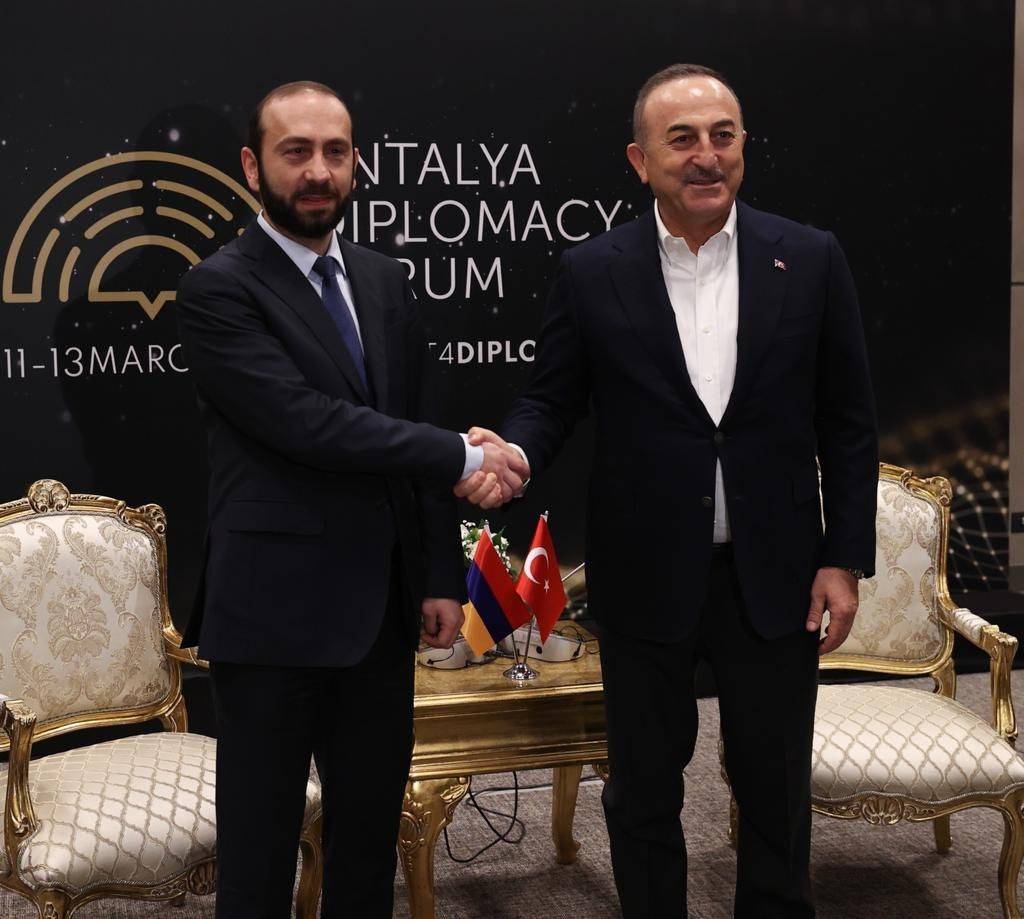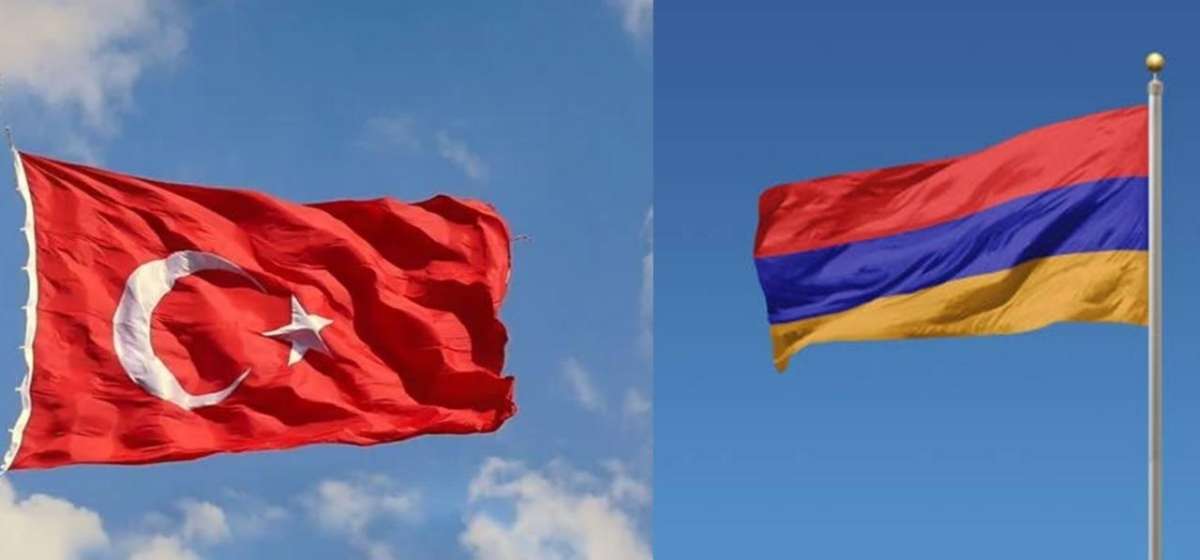The relations between Turkey and Armenia were severed in 1993 during the war between Armenia and Azerbaijan over the disputed region of Nagorno-Karabakh…reports Asian Lite News
Armenia’s humanitarian support to victims of last week’s massive earthquakes in southern Turkey can further contribute to the normalisation of relations between the two neighbours, Turkish Foreign Minister Mevlut Cavusoglu said on Wednesday.
“This understanding of cooperation can contribute to our ongoing normalization process,” Cavusoglu said at a joint press conference with his Armenian counterpart Ararat Mirzoyan in the Turkish capital Ankara, Xinhua news agency reported.
Cavusoglu also thanked Armenia for sending search and rescue teams to save quake victims and delivering humanitarian aid immediately after Turkey was rocked by the strong tremors.

“Armenia has offered a hand of friendship and solidarity in our difficult time,” he said.
“We have agreed to take steps to accelerate the normalization (of ties),” the Turkish minister said, referring to the dialogue launched last year aimed at ending their decades-old hostilities.
Turkey and Armenia will reconstruct the bridges and roads connecting the border, he said.
Mirzoyan paid a visit to Turkey on Wednesday after the devastating earthquakes struck Turkey and Syria on February 6. It is Mirzoyan’s second trip to Turkey after meeting Cavusoglu in an international forum in March last year.
“Being in Turkey in these difficult times, I would like to once again confirm our willingness to build peace, for the full normalisation and opening the borders between Turkey and Armenia,” said the Armenian top diplomat.
In a symbolic act, the border between Turkey and Armenia, which had been closed for more than 30 years, was opened on Saturday to allow the delivery of Armenia’s humanitarian aid to quake-hit Turkey, Mirzoyan said, adding the second batch of Armenian aid crossed the border on Tuesday night.
The relations between Turkey and Armenia were severed in 1993 during the war between Armenia and Azerbaijan over the disputed region of Nagorno-Karabakh. Ankara closed its border with Armenia to show support for Azerbaijan.
Opening the border was one of the key issues Armenia demanded since last year as the two countries stepped up the normalisation dialogue.


